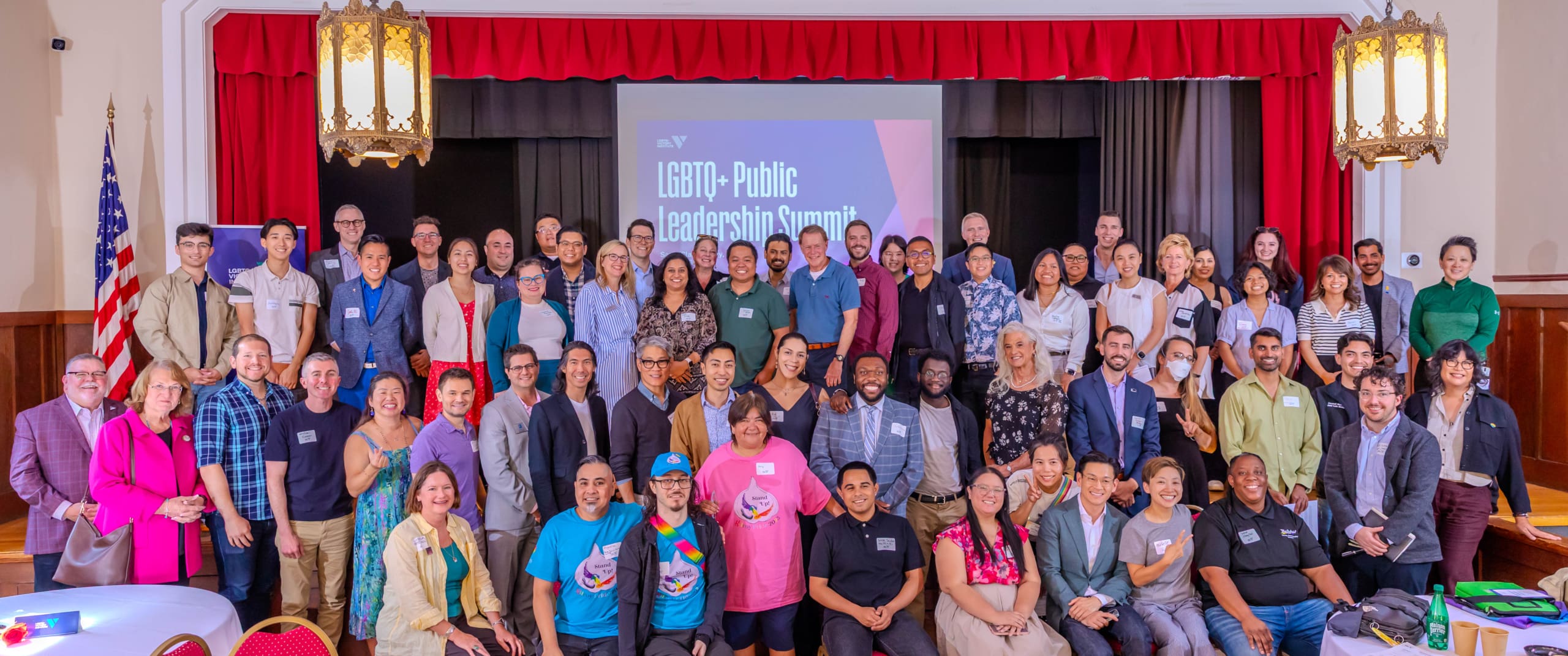
OUT ON THE HILL is the official blog of the Victory Congressional Interns. Views expressed do not necessarily reflect those of LGBTQ+ Victory Institute. Learn more about the internship at victoryinstitute.org/vci.
———————————–
I’ve worked on Capitol Hill for two weeks now. In this time, I’ve learned how to navigate tunnels, how to eat my lunch at my desk, how to keep a straight face as members ten feet from me defund trans healthcare, defund IVF, defund ports in Gaza to deliver critical aid. But most importantly, I have learned that, on the Hill, your words are never just yours.
As someone who enjoys writing, I take pride in the construction of my words. What I write is what I think is what I say. And most of it will never be read because my writing is also the most honest thing I have. And with an onslaught of AI and a capitalistic workforce that endorses output over creativity, I understand it is a privilege to have the time and space to write. But in the walls of Congress, members don’t have such time. Instead, they often pass the sanctity of their words off to press secretaries, comms directors, caucuses, and interns who seek to replicate their voices. Chair of the Equality Caucus Rep. Mark Pocan, I’ve learned, is a man of few words. Speaker Emerita Nancy Pelosi is a woman of many and prefers paper over teleprompters. Rep. Ritchie Torres has a flair for the comical, though his unscripted moments are where he shines most.
By-lines of almost everything from floor speeches to Tweets, press releases to op-eds should host five to six names, not just the Member. Social media posts often come from caucus-made tool kits that ensure language is just right concerning legislation, holidays, and remembrances, allowing comms directors to simply pick their favorite graphic and post. As for speeches, Democratic and Republican remarks are almost synonymous within their parties, given the body of materials they work from. For example, in the last Appropriations Committee markup, every Democrat that spoke against the FY 25 Defense Bill followed a tight line of bullets: thank you colleagues (personalized anecdote about members retiring), bipartisan bill despite the riders, can’t support Russia, bill harms reproductive rights and LGBTQ veterans (always in that order), and yield back time. The bullet points are made. The tone is argumentative.
Event speeches are perhaps more sinister in their dissonance between written and spoken word. The other night, while volunteering at the Equality Pac Gala, I was allowed to sit and eat a four-course meal during the event’s speeches. Escorted to Table One, I looked wholly out of place. The table hosted six gay men, two straight Congressmen, and then, me, a lesbian in a pin-stripe button-down and scuffed loafers. I wasn’t wearing my blazer. It had rips in the armpits.
With no teleprompter in sight, I believed everyone had memorized their speeches as Representatives, drag queens, and celebrities took the stage. However, halfway through the program, I noticed the clear panes of glass to the left and right of the stage. The hidden, reflective teleprompter allowed speakers, but not audience members, to see a script that was projected up from monitors and out from mirrors, giving the illusion of memorization. The panes were strategically placed, so we, the audience, might have felt like speakers were talking to us, despite their eyes ending at the pane of glass. It was at one moment clever. At the next, it was unsettling, a reminder that political words and beliefs are constructed and reconstructed by a political machine that is much larger than the speaker.
But it’s not just speeches. Votes are also a culmination of caucuses, lobbyists, legislative aids, and election strategy. At the recent appropriations meeting, a woman next to me wrote “No on amendment” on a legal notepad, before slipping it to her boss. She did this—yes or no—for each amendment. He followed suit. Party whips also, well, whip. At the last two communicators meetings, everyone was reminded to follow Minority Leader Rep. Hakeem Jefferies’ opinion on the NDAA, a position likely framed in large part by his comms director.
This, of course, is efficient. No one can be an expert on everything, especially Representatives who must spend hours in committee markups and hearings or meeting with constituents. But we ask our Congress Members to have opinions, to take stances, to inspire us, and, more often than not, their words are a culmination of work from comms directors, caucuses, whips, and reporters. Members, of course, have final say, and, certainly, many diverge from recommended votes, rewrite speeches, and are actively involved in decisions and writing. But we must also acknowledge that there is the force, effort, and expertise of many behind the words of one.
We elect those who move us with their conviction, who will represent our values and care for our communities, but we must acknowledge the entire team of people across caucuses, departments, and positions helping frame every elected official and their values. To an extent, I knew this. But working on the Hill, for all the good, has left me with a sort of haunting. To me, the frame, the voice, and the texture of writing are what move us. At the Equality Pac Gala, a crowd raised their pocketbooks, not because Representatives and celebrities said queer people can make change, but because Mary Steenburgen illustrated her personal losses due to government inaction in the HIV/AIDS epidemic and Amber Briggle nearly cried while telling us she was investigated by the Texas Department of Family Protective Services for supporting her trans child.
Words are seemingly everything in politics. They elect. They cancel. They make and break careers. I do not mean to imply that members aren’t honest in their ideals and words. In fact, many politicians control their social medias, speeches, and votes, and they are right to work with experts when understanding and voting on everything from queer rights to environmental policy. But Congress is a feat of communal effort. And such collectivity must remind us that politics extends far beyond speeches and votes to the people we elect, appoint, hire, and encourage to run.

